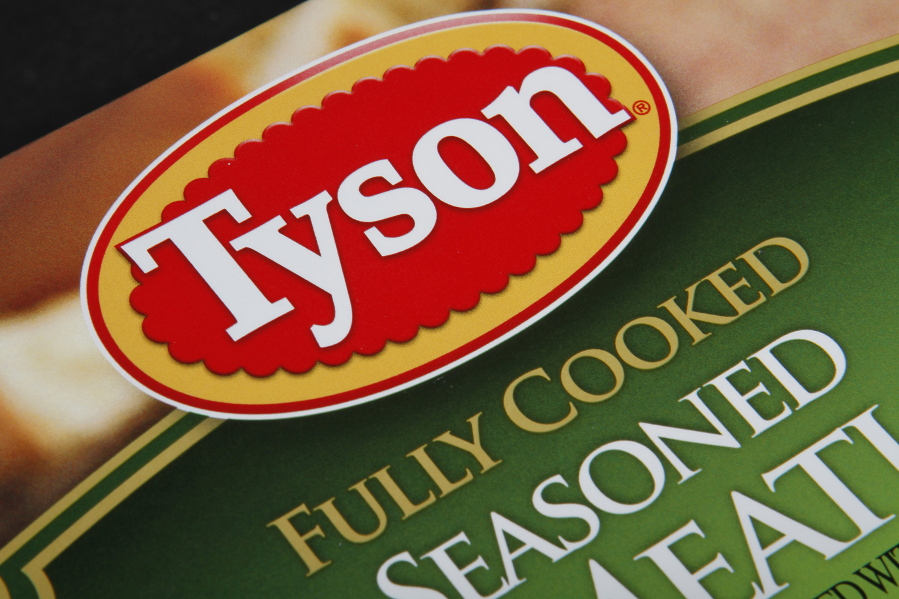NEW YORK — Tyson Foods says it’s been subpoenaed by federal regulators, likely related to an investigation in connection with allegations that the company and others colluded to fix poultry prices.
The Springdale, Ark.-based meat producer said in a regulatory filing it received the subpoena Jan. 20 from the Securities and Exchange Commission. It said it is cooperating with the investigation, which is in an “early stage.”
Tyson says it believes the investigation is tied to allegations that it violated antitrust laws. In September, a class-action lawsuit had said Tyson, Pilgrim’s Pride and other poultry producers conspired to “fix, raise, maintain and stabilize” the price of broiler chickens since at least 2008. It said the primary method to do so was “limiting their production.”
Late last month, Tyson, Pilgrim’s Pride, Sanderson Farms and the other chicken companies named in the suit filed a motion to dismiss the actions. The motion said production of broiler chickens grew during the period named in the lawsuit.
The suit by New York-based Maplevale Farms had said the limiting of production by the companies included an “unprecedented” destruction of breeder hens in 2008, and a second wave of “coordinated production cuts” in 2011 and 2012.
In addition, the suit said the companies exchanged competitively sensitive, non-public information about prices, sales volume and demand.
Subsequently, another lawsuit by a Tyson shareholder said the company’s regulatory filings were misleading and did not make proper disclosures, repeating the allegations of collusion in the previous suit.
Tyson and Sanderson Farms declined to comment beyond their public filings. A representative for Pilgrim’s Pride did not immediately respond to a request for comment.
A representative for the Securities and Exchange Commission declined to comment. The agency investigates potential violations of securities laws, such as whether companies are complying with disclosure rules. A representative for the Justice Department, which investigates civil and criminal antitrust violations, did not immediately respond to a request for comment.
William Sawyer, executive director of animal protein research at Rabobank, said that the prices consumers pay at supermarkets is often tied to price indexes provided by third parties such as Urner Barry and the U.S. Department of Agriculture. The indexes are determined by factoring in data from buyers, traders, distributors and suppliers such as Tyson and Pilgrim’s Pride.
Historically, Sawyer said the chicken industry has been cyclical. Since 2012, however, Sawyer said the industry has been profitable and that margins reached historic highs in 2015. Rabobank provides financial services to the food and agriculture companies, including chicken companies.



